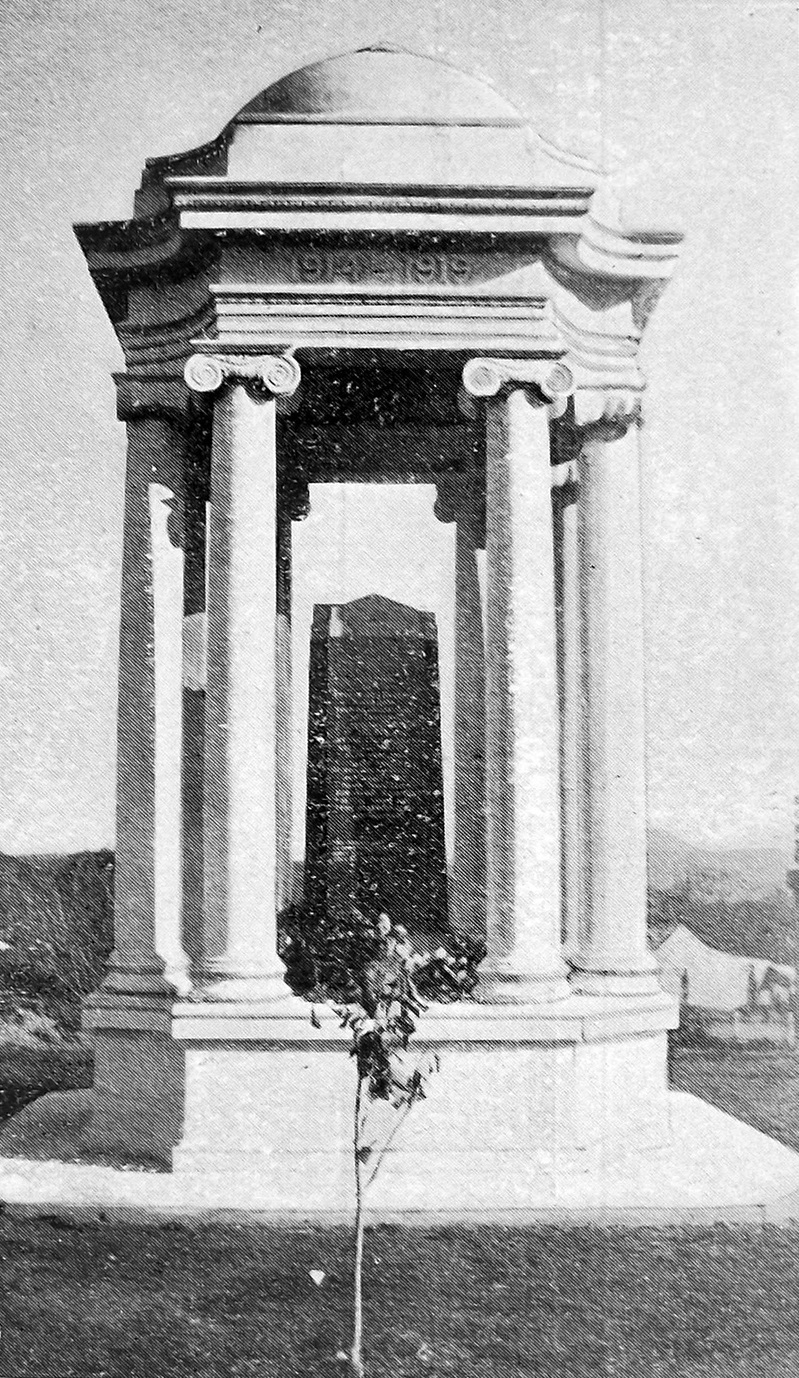

The gathering was held for the purpose of unveiling a beautiful memorial, which will bear witness from now onwards to the bravery, devotion and sacrifice made by so many men in the interests of humanity in the great struggle against German militarism. The memorial bears the following inscription: "Erected by the people of Lawrence and surrounding districts in grateful remembrance of the men who, at the call of duty, left all that was dear unto them, faced danger, endured hardship, and finally laid down their lives for their country in the Great War for righteousness and freedom." The granite panel contains the names of 25 men from Lawrence, 11 from Waitahuna, nine from Beaumont, eight from Tuapeka West, six from Raes Junction, six from Waipori, five from Clark’s Flat, four from Blue Spur, four from Waitahuna West, three from Evans Flat and three from Tuapeka Flat. The memorial, which occupies a commanding position in the Peace Garden, is 25 feet high and 16ft wide. It is octagonal in shape, and is constructed of concrete, covered by cement. The memorial was unveiled by Mrs Samuel French.
One minute of silence was then observed, this being followed by the sounding of the "Last Post" by Sergeant-major Napier. A number of beautiful wreaths were subsequently laid on the memorial.
Reform elects ‘fellow’ leader
The first indication of Mr Coates’s selection as Leader of the Reform Party came in a curious way. A workman coming down the lift said he had heard them singing "For He’s a Jolly Good Fellow." This was at 20 minutes past four, and the inevitable conclusion was that Mr Coates had been selected as Leader of the Party. The caucus, having decided who was to be the new leader, adjourned for afternoon tea and soon afterwards Sir Francis Bell (Prime Minister) sent for the press representatives who were in the building, and to them he made a brief announcement. He said: "Joseph Gordon Coates is elected Leader of the Party, and of all those who sit on the right of the Speaker’s chair." The latter part of the sentence was somewhat cryptic because Mr George Witty, one of those who sit on the right of the Speaker’s chair, though he has voted with the Reform Government, is not a member of the Reform Party, and Mr Lysnar, who also sits on the right, was not present at the caucus.
Gordon Coates takes on mantle
The expected happened at the meeting of the parliamentary members of the Reform Party yesterday. Mr Coates was chosen as party leader, and it goes without saying that he will promptly become Prime Minister. We congratulate him upon his signal advance in public life, and confidently hope that the results will be satisfactory to the country and to himself. The auspices are not unfavourable, though circumstances may arise that will shrewdly test the new leader’s judgment and general capacity. He does not lack experience. It is a little less than fourteen years since he entered Parliament. — editorial
A bad phase for Port elderly
In terms of the Port Chalmers council’s renewed street lighting contract with the City Council, which owns the electrical supply, the streets are now left unlighted for several nights at the full moon period. Under the old lighting contract the street lighting was not cut off at full moon, and the new arrangement is not regarded as favourable, the unlighted streets when the moonlight is obscured by cloudy weather being a hardship, especially in the case of old people who have occasion to go out at night time. The new councillors, recognising the disability, have decided to endeavour to modify the terms of the new lighting contract with the City Council so that the lighting of the streets may be improved. — ODT, 28.5.1925
Compiled by Peter Dowden











